The postictal phase is frequently extended in elderly patients and can contribute to physical injury sustained during seizure activity. Schold C Yarnell PR Earnest MP.
 Epilepsy In Elderly People The Bmj
Epilepsy In Elderly People The Bmj
In patients with Alzheimers disease the most common form of dementia approximately 10-22 have at least one unprovoked.

Seizures in elderly. Diseases that affect brain function. Origin of seizures in elderly patients. Among 50 previously well patients aged 69 years or older who had a first seizure a cause could be identified in only 25 50.
2 ÜMost early seizures ie. Seizures are frequent in patients over 60 years. When people have these experiences yet stay fully conscious the episodes are called simple partial seizures.
2 w4 With continuing ageing of the population the number of older. Those affected often lose confidence and independence. The numbers of patients with dementia and patients with epilepsy are increasing in the global population.
This paper reviews recent developments including a new proposed definition of epilepsy a transgenic mouse model of Alz. And a non-epileptic seizure can result in all of the same symptoms of a generalized epileptic seizure. The most common cause of seizure activity in seniors is cerebrovascular disease occurring more frequently as a consequence of a hemorrhagic stroke than the nonhemorrhagic type.
For example a non-epileptic seizure can be caused by a physical condition or even stress. Treatable causes were found in 20. 11 rows Elderly patients can have episodes that mimic seizures but are actually the.
Detection of a seizure in adults and elderly is hard as patient does not show any alarming signal and are usually wide awake having no memories of the event soon after it ends. The Epilepsy Foundation states that seizures are associated with physical changes in an elders brain caused by a stroke heart disease Alzheimers disease or brain tumors. Cerebrovascular disease accounted for the seizures in 30 of the total group.
2 ÜIt has been suggested that late-onset epilepsy. For example memory problems confusion falls dizziness or sensory changes like numbness are often blamed on getting older 45 However sometimes these can actually be signs of seizures. Epileptic seizures occur in patients with dementia at a higher prevalence than among healthy elderly individuals.
The cause of seizures in elderly patients is usually epilepsy but its worth emphasizing that seizures in seniors can be the result of many things. Seizures among older adults can be attributed to myriad conditions that affect the brain. In fact these two conditions are related and it is estimated that at least 510 of seizures or epilepsy in older individuals aged 60 years are caused by a neurodegenerative dementia.
The incidence of seizures among patients with dementia varies with the aetiology of the dementing illness. Epilepsy in the elderly. Such seizures are likely to occur when electrical activity in the brain is disrupted and can be very dangerous.
W3 The annual incidence of epilepsy recurrent unprovoked seizures rises from 90 per 100 000 in people between the ages of 65 and 69 to more than 150 per 100 000 for those over 80 fig 1. To study the aetiological profile of seizures in patients aged 60 years and above 100 elderly patients with seizures attending medicine or neurology OPD or admitted under these departments for seizures were studied. Partial seizures in the elderly may produce uncontrolled shaking alter emotions or change the way things look smell feel taste or sound to the person having the seizure.
According to epilepsy foundation seizures in the older adults can be linked with physical changes in the brain caused by heart disease alzheimers disease brain tumors or stroke. Due to the increased risk factors for the elderly older adults are likely to develop the condition. Falls burns fractures lacerations strains and severe bruising can greatly reduce quality of life.
Often there is an underlying causative disorder which aids in the treatment of these patients. In adults the onset of a seizure is quite elusive. Thirty per cent of acute seizures in elderly people will present as status epilepticus w2 which carries a mortality approaching 40.
Thats because seizures may be hard to recognize in older adults and may go unnoticed. The occurrence of petit mal seizure may range form single to multiple times in a day and can easily be mistaken for lack of attention or behavioral traits of the old age. Only one tumor was found.
The elderly often defined as those 65 years or older are the most rapidly growing segment of the population and onset of epilepsy is higher in this age group than in any other. Some common risk factors amongst the elderly are as follows. However in half of the cases of epilepsy in older patients the origin has been unidentified.
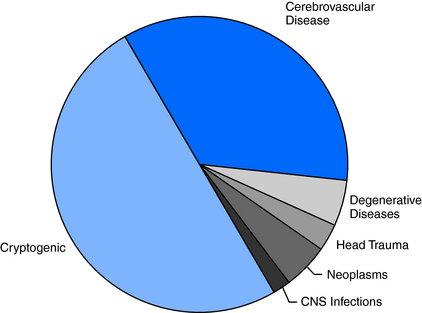 Seizures And Epilepsy In The Elderly Clinical Gate
Seizures And Epilepsy In The Elderly Clinical Gate
 Sick Senior With Epileptic Seizures At Home Female Patient Suffer Stock Photo Picture And Royalty Free Image Image 134653498
Sick Senior With Epileptic Seizures At Home Female Patient Suffer Stock Photo Picture And Royalty Free Image Image 134653498
Seizures And Epilepsy In The Elderly Practical Neurology
 Quick Guide Epileptic Seizures In Older Adults Population Health Learning Network
Quick Guide Epileptic Seizures In Older Adults Population Health Learning Network
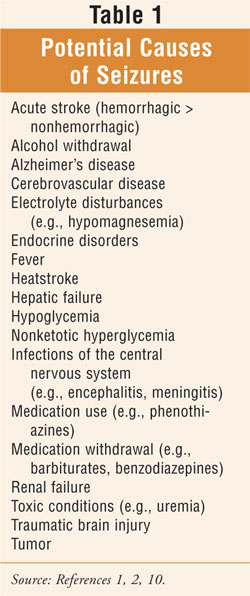 Causes Of Seizures In The Elderly
Causes Of Seizures In The Elderly
Seizures And Epilepsy In The Elderly Practical Neurology
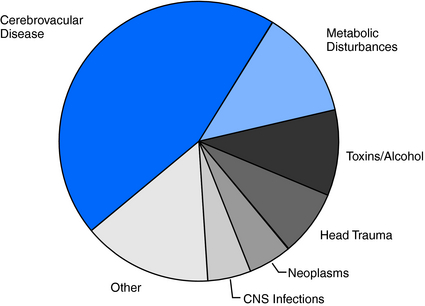 Seizures And Epilepsy In The Elderly Clinical Gate
Seizures And Epilepsy In The Elderly Clinical Gate
 Older Adults Epilepsy Foundation
Older Adults Epilepsy Foundation
 Epilepsy In The Elderly Clinical Advisor
Epilepsy In The Elderly Clinical Advisor
 The Distribution Of Types Of Seizures In Elderly And Young Patients Download Table
The Distribution Of Types Of Seizures In Elderly And Young Patients Download Table
 Sick Senior Grandmother In Wheelchair With Epileptic Seizures In Outdoor Elderly Patient Convulsions Suffering From Illness With Stock Photo Image Of Illness Grand 153385930
Sick Senior Grandmother In Wheelchair With Epileptic Seizures In Outdoor Elderly Patient Convulsions Suffering From Illness With Stock Photo Image Of Illness Grand 153385930
 Acute Symptomatic Seizures In Geriatric Patients With Multiple Risk Factors A Diagnostic Challenge Bentham Science
Acute Symptomatic Seizures In Geriatric Patients With Multiple Risk Factors A Diagnostic Challenge Bentham Science
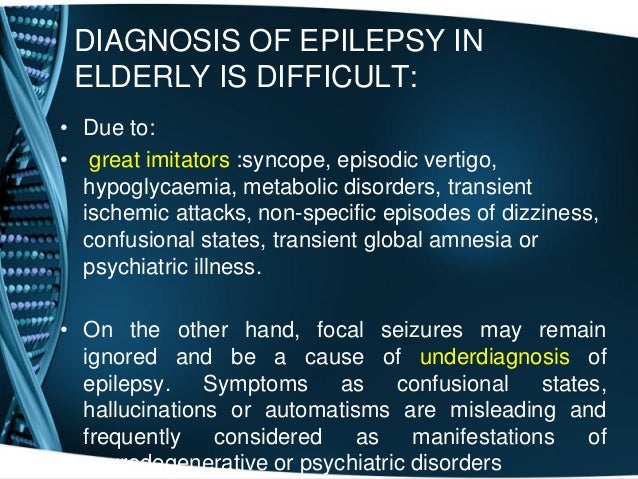
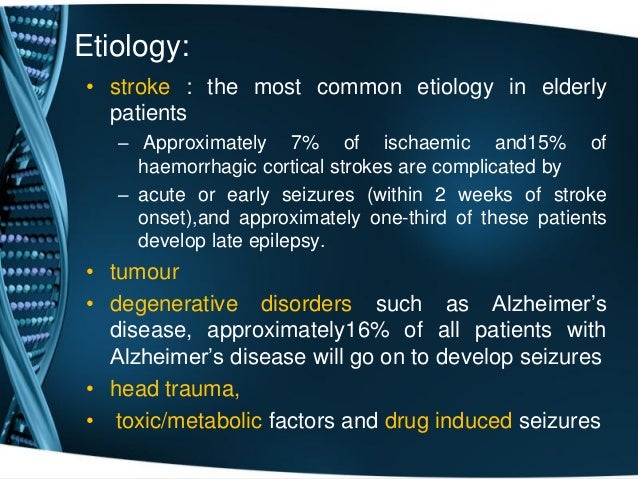
No comments:
Post a Comment
Note: Only a member of this blog may post a comment.